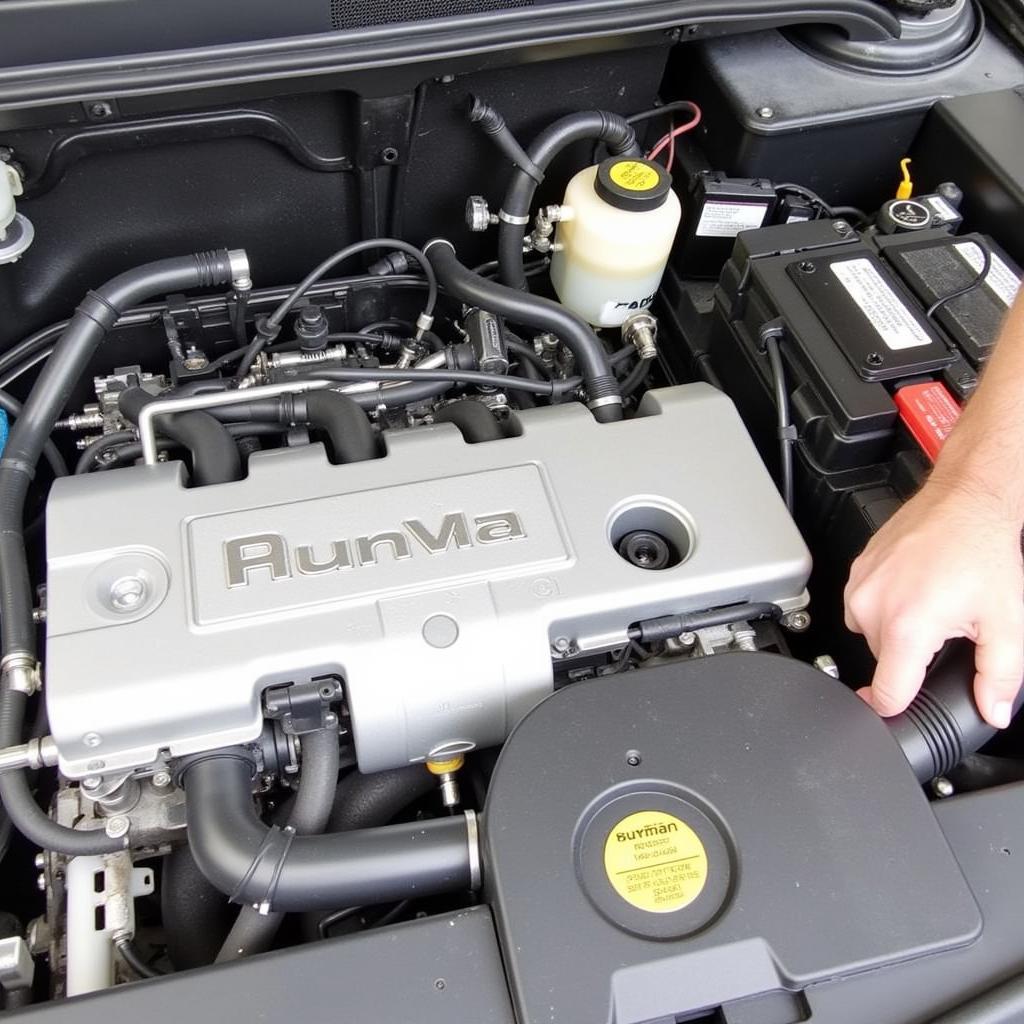Losing or damaging your car key fob can be a real headache. It’s not just inconvenient; it can leave you stranded and out of pocket for expensive replacements. This guide will walk you through the different options for getting a replacement key fob, the costs involved, and some handy tips to avoid future lockouts.
Understanding Your Options: Where to Get a Replacement
When it comes to replacing your key fob, you have a few choices, each with its pros and cons:
1. Dealership
Going directly to the dealership where you purchased your car is often considered the most reliable option. Dealerships have access to the manufacturer’s database, ensuring you get a genuine key fob that’s programmed specifically for your vehicle’s make, model, and year.
Pros:
- Guaranteed compatibility: No risk of incompatibility issues.
- Programming expertise: Dealerships have trained technicians who can handle even complex programming procedures.
Cons:
- Higher cost: Dealerships typically charge more for both the key fob and programming compared to other options.
- Longer wait times: Ordering and programming a key fob through a dealership might take longer due to manufacturer lead times.
2. Automotive Locksmith
Automotive locksmiths specialize in car keys and locks, offering a convenient and often more affordable alternative to dealerships. Many locksmiths possess the equipment and expertise to program key fobs for a wide range of car models.
Pros:
- Convenience: Locksmiths can often come to your location, saving you the hassle of towing your car.
- Faster service: Programming can often be done on the spot, getting you back on the road quickly.
- Competitive pricing: Locksmiths usually offer more competitive rates than dealerships.
Cons:
- Varying expertise: Not all locksmiths have the same level of experience with all car models.
- Potential compatibility issues: There’s a slight risk of getting a key fob that’s not fully compatible with your car, especially for newer models with advanced technology.
3. Online Retailers
Numerous online retailers sell replacement key fobs, often at lower prices than dealerships or locksmiths. While this can seem appealing, it’s crucial to exercise caution.
Pros:
- Lower prices: Online retailers often have the most competitive prices on key fobs.
- Wide selection: You can find key fobs for a vast range of makes and models.
Cons:
- Programming challenges: You’ll likely need to find a locksmith or dealership to program the key fob, adding to the overall cost.
- Compatibility risks: Ensure the key fob you purchase online matches your car’s specifications to avoid compatibility problems.
- Quality concerns: Be wary of counterfeit or low-quality key fobs sold by unreliable online sellers.
4. DIY Programming
Some newer car models allow for DIY key fob programming using a specific sequence of steps outlined in the owner’s manual. However, this method is not available for all vehicles.
Pros:
- Cost-effective: You only pay for the replacement key fob.
- Convenient: Programming can be done at your own pace and convenience.
Cons:
- Limited availability: Not all car models offer DIY programming options.
- Technical challenges: The programming procedure can be complex and requires carefully following instructions.
Factors Affecting Replacement Cost
Several factors can influence the overall cost of getting a replacement key fob:
- Car Make and Model: Luxury or high-end vehicles often have more sophisticated key fobs with advanced features, leading to higher replacement costs.
- Key Fob Type: Basic key fobs with limited functions are cheaper to replace than those with features like remote start, keyless entry, or a built-in alarm.
- Programming Complexity: Newer cars with advanced immobilizer systems and keyless entry can be more expensive to program.
- Service Provider: Dealerships generally charge more for programming than automotive locksmiths.
- Location: Prices can vary based on your geographic location and local market rates.
Essential Tips to Avoid Future Lockouts
- Spare Key Fob: Always have a spare key fob programmed and readily accessible. This simple precaution can save you time, money, and stress in case of loss or damage.
- Key Fob Maintenance: Handle your key fob with care to prevent damage. Replace the battery promptly when it starts to weaken, as indicated by a decreased signal range or intermittent functionality.
- Emergency Contact: Keep the contact information for a trusted automotive locksmith or your dealership saved in your phone or readily available.
FAQs About Replacement Key Fobs
Q1: Can I program a key fob myself?
A: It depends on your car model. Some newer vehicles offer DIY programming options, while others require specialized equipment and expertise.
Q2: How long does it take to program a key fob?
A: Programming time varies depending on the car model and the complexity of the system. It can range from a few minutes to an hour or more.
Q3: Can I get a replacement key fob if I’ve lost all my keys?
A: Yes, but it will be more expensive and time-consuming. You’ll likely need to provide proof of ownership and the vehicle’s VIN to the dealership or locksmith.
Q4: How can I tell if my key fob battery is dying?
A: Signs of a dying key fob battery include decreased signal range, intermittent functionality, or the need to press the buttons multiple times.
Q5: What should I do if my key fob gets wet?
A: Remove the battery immediately and let the key fob dry completely before attempting to use it again. If it still doesn’t work, you may need a replacement.
Conclusion
Getting a replacement key fob is an inevitable part of car ownership. By understanding your options, considering the factors that influence cost, and taking preventive measures, you can navigate the process smoothly and minimize the inconvenience of a lost or damaged key fob. Remember to act quickly and choose a reputable service provider to ensure you get a reliable and fully functional replacement.

